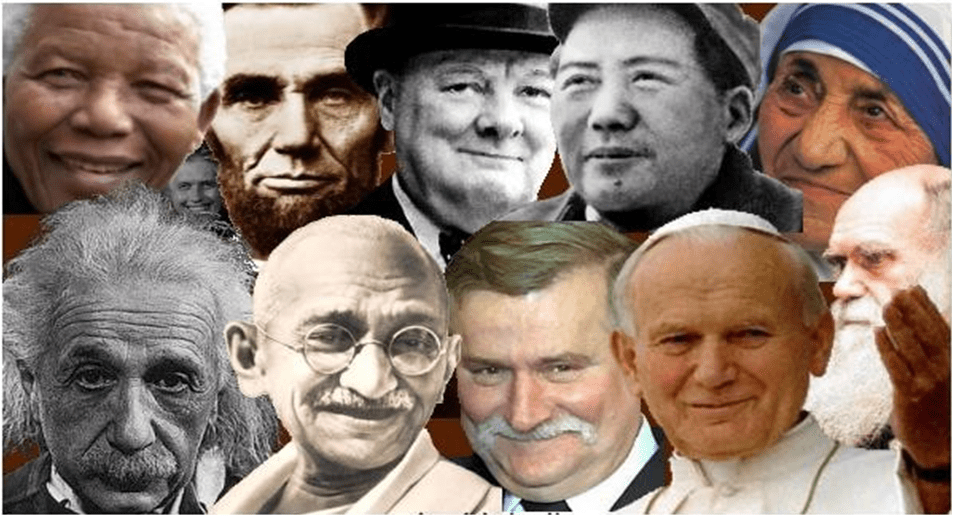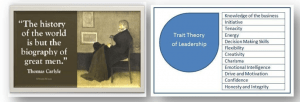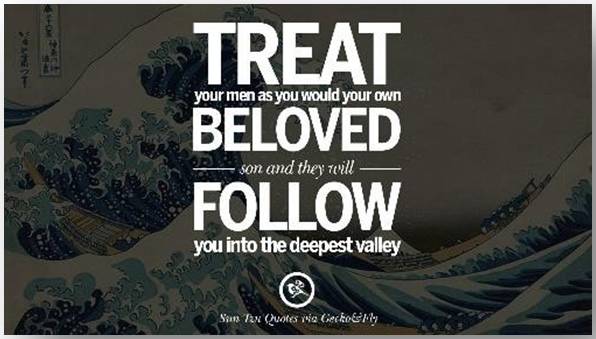
LEADERSHIP DOWN THE AGES : DIFFERENT APPROACHES
- Oct 11th 2021
Unlike ‘Managing’ which evolved with the Industrial Revolution, Leadership is a very old concept as well. Ever since man began his journey as a caveman, hunting for food in teams, or gathering food through farming, there has been the application of leadership. Applying the right leadership could be a matter of life and death in the wilds! Clearly, its application in different geographies, situations and eras led to the evolution of different concepts and approaches. In today’s global village in a VUCA world, where leading virtual teams across cultures is the order of the day, applying the right concept of leadership could make a huge difference to organizational and social success. Inability to put the right leader in the right role could spell disaster for the team and society, setting both backwards in multiple ways.
Understanding theories and styles of leadership could help you be more effective in your role, particularly if your position requires frequent collaboration with or managing others. Your leadership style hugely impacts the way you coach people around you.
Not all concepts apply uniformly to all team members or situations at all times. Also, during the Coach identification process or choosing a Project Team member, interviewers may assess your Leadership or Coaching potential, so it could be helpful to understand your preferred leadership approach. Let us examine some of the more popular approaches to leadership. These theories have been created down the ages and have stood the test of Time.
What are leadership theory and leadership style?
Leadership theory studies the key competencies of good leaders. Psychologists analyze data to develop leadership theory and researchers try to discover the common qualities or behavioral patterns of excellent leaders. Some of the leadership aspects they consider include:
• Personality traits
• Actions taken
• Results achieved
• Operating Environment
• Immediate Situation
• Decision-making process
• How input is processed
• How relationships are maintained
• Impact – Word of Mouth over long term
Leadership style is the way a leader approaches the task and manages team members. Leadership styles were formally developed as a result of studies on leadership theory and each style includes distinct qualities. Common leadership styles include:
| LEADERSHIP STYLE | DISTINCT QUALITY |
| Coach | Recognizes strengths and weaknesses, helps people set goals and provides a lot of feedback. |
| Visionary | Manages through inspiration and confidence. |
| Servant | Focuses on helping team members feel fulfilled. |
| Autocratic or authoritarian | Makes decisions with little or no input from others. |
| Laissez-faire or hands-off | Delegates tasks and provides little supervision. |
| Democratic | Considers the opinions of others before making a decision. |
| Pacesetter | Sets high standards and focuses on performance. |
| Bureaucratic | Follows a strict hierarchy and expects team members to follow procedure. |
Main Leadership Theories
The primary leadership theories are:
The Great Man Theory
The great man theory of leadership states that excellent leaders are born not developed. A popular concept in the 19th century, this theory states that leadership is an in-born quality. This type of leader often possesses the natural attributes of intelligence, courage, confidence, intuition and charm among others. It was believed that the Leader was the representative of a Supreme being and hence had to be greater than others. It is interesting to note that this theory focuses on ‘Man’ as the Leader as a gender. Jesus Christ was the “Son of God“. The prophet Mohammed was “the chosen one “.
The Trait Theory
The trait theory of leadership states that certain natural qualities characterize good leaders. Thus, height, physical stature, skin complexion, virility, mental ability, communication skills, etc. counted as key traits of the leader. Karna in the Mahabharata was born with the Kavach / Kundala. Modern research concludes however that having certain qualities does not necessarily mean someone has strong leadership skills. Some leaders may be excellent listeners or communicators, but not every listener or communicator makes an excellent leader.
The Behavioral Theory
The behavioral theory of leadership focuses on how a person’s environment, not natural abilities, forms him or her into a leader. One of the key concepts of behavioral theory is conditioning due to environment. Conditioning states that a person will be more likely to act or lead in a certain style as a result of environmental responses to behavior. Thus people from a certain geographic location under attack are more likely to be more resilient, question rules and innovate more.
“ We shall fight on the seas and oceans, we shall defend our Island, whatever the cost may be, we shall fight on the beaches, we shall fight in the fields and in the streets, we shall fight in the hills; we shall never surrender
! “ – Winston Churchill
The Transactional Theory or Management Theory
The transactional theory of leadership, also called “the management theory,” studies leadership as a system of rewards and penalties. The Indian statesman Kautliya / Chankaya in his book “ Arthashastra “ talks about “ Saam, Daam, Danda, Bheda “ as the key tools in the hands of the king or leader.
Saam : Explain what is expected to all team members
Daam : Reward those who observe team norms and guidelines
Danda : Penalise those who repeatedly disobey or under perform
Bhed : Discriminate between the good and not so good team members
It views effective leadership as results-focused and hierarchical. Transactional leaders prioritize order and structure over creativity.
The Transformational Theory or Relationship Theory
The transformational theory of leadership, also called “the relationship theory,” studies effective leadership as the result of a positive relationship between leaders and team members. Transformational leaders motivate and inspire through their enthusiasm and passion. They are a model for their teams, and they hold themselves to the same standard they expect of others. Here, people, i.e. team members and other stakeholders matter more than other criteria including team goals. Thus, we keep going back to seek the Coaching or Mentorship of some of our former managers because of the way we perceive their focus on Relationships.
The Situational Theory
The situational theory argues that the best kind of leader is one who is able to adapt her style based on the situation. They may respond to a situation by commanding, coaching, persuading, participating, delegating or however they think is necessary. Situational leaders are defined by their flexibility. Thus, for the same team member who may be adept at achieving results yet is tardy with documentation,
the leader may use different leadership styles in each of the two different cases, as the situations are different. Essentially the “ Situation “ here refers to the Maturity Level M of the follower which is a combination of Ability [ Knowledge + Skill ] and Willingness [ Attitude ]. The M determines the most effective S [ Leadership Style ] for the specific situation.
Why you should identify your leadership theory and style
A proper understanding of different theories on Leadership enables the leader in you to assess the issue at hand more effectively and implement the most appropriate strategy. It also, enables the leader to read future prospective challenges better. This assessment of the self and the Client helps a Coach in you to deliver superior results in each session.
• Author Name: Ayan Banerji
• Title of the Blog: Leadership Down The Ages : Different Approaches
• About the Author (a short description of yourself):
• Ayan is a globally certified Facilitator and Business Coach with international work experience and has worked closely with 100 corporate houses and colleges to help identify and address work related competencies
• Program Attended with CTT: CTT Level 1 April 2021 Batch
• Reason for taking this program: To be globally certified as a Coach
• What worked for you: Learning from so many talented professionals across the globe
• What benefits you got: Knowing about ICF, examples, different approaches to Coaching









0